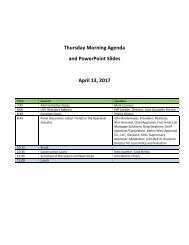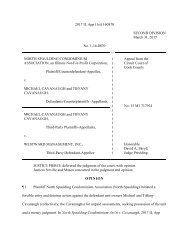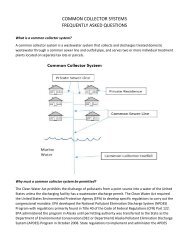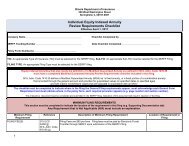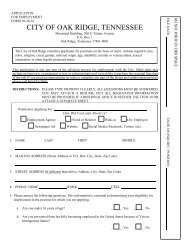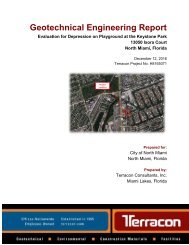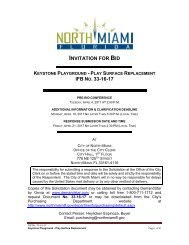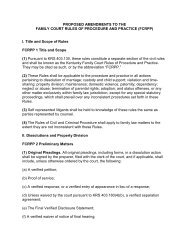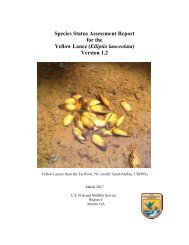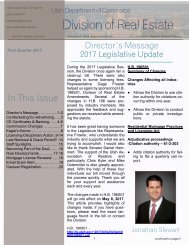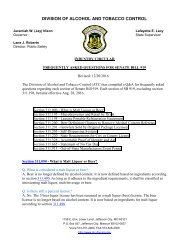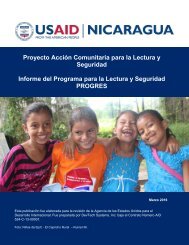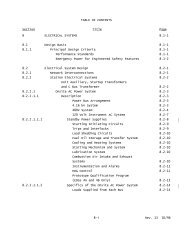EVALUATION
PA00MFK3
PA00MFK3
You also want an ePaper? Increase the reach of your titles
YUMPU automatically turns print PDFs into web optimized ePapers that Google loves.
oats/gears to determine the appropriate right sizing of fishing effort<br />
according to the carrying capacity of fishing grounds in MKBAs. This<br />
information has also guided LGUs to enact and enforce fishing closure and<br />
zoning ordinances, tract and prevent fisheries law violators, and conserve<br />
fish resources. All LGUs in four MKBAs have also enacted ordinances that<br />
prohibited the use of destructive/illegal fishing gears, mostly within specific<br />
municipal boundaries. The establishment of MPAs by some LGUs also<br />
served as closed areas for fishing. Effective enforcement of right sizing,<br />
however, requires neighboring LGUs in each MKBA to jointly support this<br />
policy through the inter-LGU collaboration. At midterm, only LGUs in VIP<br />
MKBA have enacted and enforced species-specific management policy (i.e.,<br />
seasonal closure for pelagic fish) in Balayan Bay beyond politicoadministrative<br />
boundaries, which was made possible by the active inter-<br />
LGU collaboration. Essentially, the current approaches to regulate fishing<br />
effort in four MKBAs consisted of: monetary measures (fines or penalties),<br />
gear-regulating measures, closed areas and, to a certain extent, closed<br />
seasons.<br />
11. Did social capital and<br />
leadership<br />
catalyze/create<br />
movement of LGUs<br />
from startup fisheries<br />
management to EAFM?<br />
The few Municipal Mayors who were interviewed through KII have<br />
expressed the importance of right sizing policy and the potential for<br />
enacting the policy. However, they are also cautious about its enforcement<br />
for lack of additional knowledge and information, such as; the methods of<br />
reducing opportunism by segregating friendly and destructive fishing gears,<br />
encouraging all fishers to ensure compliance, and motivating sustained<br />
enforcement to reduce speculative fishing. All these information could be<br />
provided by the project’s ongoing studies if completed as scheduled.<br />
The project has measured social capital in terms of the presence of<br />
leaders/political will, local champions, and the ability to resolve conflicts<br />
among inter-LGUs. ECOFISH Project partnered with League of<br />
Municipalities of the Philippines (LMP) to support the training of newly<br />
elected Mayors (also called ONE-M Program) in eight MKBA sites. It<br />
supported the participation of five (5) current and past “champion” Mayors<br />
to mentor newly elected Mayor on environmental governance, particularly<br />
in coastal resources and fisheries management. ONE-M Program has aimed<br />
to bring together all concerned Municipal Mayors to build a network of<br />
cooperation and resource sharing in the form of a social capital that<br />
produces improved foundations for EAFM for the common good of all<br />
fishing households and communities. This program has been successful in<br />
producing “champion” Mayors involved in ECOFISH and/or FISH Project,<br />
or part of MOREFISH champions formed by FISH Project and LMP in the<br />
past. In supporting ONE-M Program, the project was able to reach out to<br />
other LGUs outside of eight MKBAs to share and promote best practices.<br />
Apart from training, these LGUs have gained additional knowledge and<br />
information through site-specific case studies that could enhance local<br />
policies and plans for EAFM.<br />
This social capital formation has shown initial positive effects. The inter-<br />
LGU collaboration in SN MKBA exhibited the best example of how joint<br />
action can lead to evolution of stronger strategic alliances and additional<br />
Annex 5 - 5



